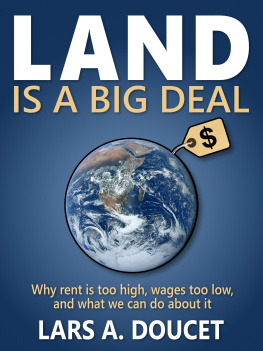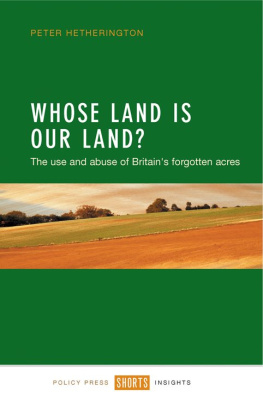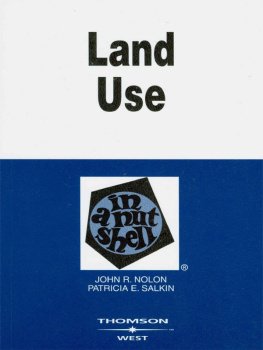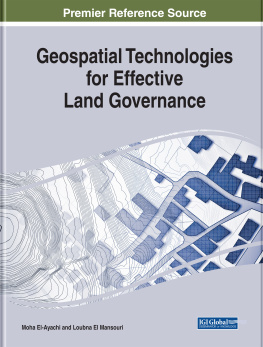ROUTLEDGE LIBRARY EDITIONS:
COMPARATIVE URBANIZATION
Volume 4
LAND AND HOUSING POLICIES IN
EUROPE AND THE USA
Land and Housing Policies in Europe and the USA
A Comparative Analysis
Edited by
GRAHAM HALLETT
First published in 1988 by Routledge
This edition first published in 2021
by Routledge
2 Park Square, Milton Park, Abingdon, Oxon OX14 4RN
and by Routledge
52 Vanderbilt Avenue, New York, NY 10017
Routledge is an imprint of the Taylor & Francis Group, an informa business
1988 Graham Hallett
All rights reserved. No part of this book may be reprinted or reproduced or utilised in any form or by any electronic, mechanical, or other means, now known or hereafter invented, including photocopying and recording, or in any information storage or retrieval system, without permission in writing from the publishers.
Trademark notice: Product or corporate names may be trademarks or registered trademarks, and are used only for identification and explanation without intent to infringe.
British Library Cataloguing in Publication Data
A catalogue record for this book is available from the British Library
ISBN: 978-0-367-75717-5 (Set)
ISBN: 978-1-00-317423-3 (Set) (ebk)
ISBN: 978-0-367-77201-7 (Volume 4) (hbk)
ISBN: 978-0-367-77206-2 (Volume 4) (pbk)
ISBN: 978-1-00-317023-5 (Volume 4) (ebk)
Publishers Note
The publisher has gone to great lengths to ensure the quality of this reprint but points out that some imperfections in the original copies may be apparent.
Disclaimer
The publisher has made every effort to trace copyright holders and would welcome correspondence from those they have been unable to trace.
LAND AND HOUSING POLICIES IN EUROPE AND THE USA:
A Comparative Analysis
EDITED BY GRAHAM HALLETT
First published in 1988 by
Routledge
a division of Routledge, Chapman and Hall
11 New Fetter Lane, London EC4P 4EE
Published in the USA by
Routledge
a division of Routledge, Chapman and Hall, Inc.
29 West 35th Street, New York, NY 10001
1988 Graham Hallett
Printed and bound in Great Britain by
Biddies Ltd, Guildford and Kings Lynn
All rights reserved. No part of this book may be reprinted or reproduced or utilized in any form or by any electronic, mechanical, or other means, now known or hereafter invented, including photocopying and recording, or in any information storage or retrieval system, without permission in writing from the publishers.
Land and housing policies in Europe and the USA:
a comparative analysis.
1. Land use, Urban 2. Urban policy
I. Hallett, Graham
333.7717 HD111
ISBN 0-415-00511-6
Library of Congress Cataloging-in-Publication Data
ISBN 0-415-00511-6
Graham Hallett
This book arose out of a feeling that countries could learn (either what to do or what not to do) from the urban land policies of other countries, but that there were few international comparative studies available - and that those which covered more than two countries were rarely satisfactory. This is perhaps not surprising, given the inherent difficulty of producing an international comparative study on any subject.
One method is for an individual to write about a number of countries. A single authorship makes possible a unity of style and approach, but few people can be really knowledgeable about more than two or three countries. More common is the symposium by national experts, usually the proceedings of a conference. This often suffers from the lack of a common approach. A person writing about his own country tends implicitly to assume an understanding of institutions and concepts which may be completely alien to outsiders. The consequent confusion is frequently compounded by problems of language. Probably the best arrangement is for a group of people to work closely together, with one of them acting as editor. I have been fortunate to find a number of specialists on the land and housing policies of various countries, who agreed to participate in a joint (and unfinanced) effort. We hope that we have avoided some of the pitfalls of the symposium.
Subject Matter . One question which exercised us was how much ground to cover. We wished to concentrate on urban land policy - rather than housing policy - because this wider context of housing policy has been neglected by mainstream academics. A new study also seemed appropriate because the 1980s have, in many countries, seen traumatic changes in economic conditions and associated land use. The 1980s are an era - like those which gave rise to the doctrines of Henry George and Karl Marx - in which the rich are getting richer and the poor poorer, and in which changes in the ownership of, and access to, real estate have contributed to this polarisation. The results are evident in homelessness and decaying inner cities alongside million-pound homes.
Land policy, however, is closely connected not only with housing policy, but with town planning, taxation, local government organisation and other issues. If we had confined ourselves to land policy in a very narrow sense, the result could have been somewhat arid, since land policy is not an end in itself, but a means to ends such as well-planned cities, a minimum standard of housing for all, and an equitable distribution of income. On the other hand, there was a danger of spreading our net too wide. We have therefore tried to concentrate on land policy, but to say enough about housing and town planning to clarify the effects of land policy on city development and the housing situation. Different contributors have given different slants to their chapters, reflecting the particular problems of their countries, but we have tried to cover a common core of topics, especially:
(a) the buying, selling and holding of land by public agencies.
(b) the land market, including the impact of taxation and subsidisation.
(c) the control of the land market through town planning controls, etc.
In this list, the term land has been used in the extended sense in which it is used in land law i.e. real estate, covering both virgin land and land with buildings on it, when the question of redevelopment arises (with particular reference to housing).
Value-free Science ? Land policy has historically been a controversial subject, and still is. According to the positive, or value free school of social science, however, the social scientist should be as objective as the mathematician, taking the line, My studies show that if the policy-makers want a they should adopt policy x; if they want b they should adopt policy y. I have no views as a social scientist, whatever views I may have as a citizen. An alternative view, put forward in a neglected book on the methodology of economics (Walker, 1943), is that value judgements inevitably influence writers approaches to a subject, even if they believe that they are being completely objective. It is therefore better - while trying to be as factual and objective as possible - to be open about ones economic and political philosophy, rather than pretending to Olympian detachment, and to examine normative alongside positive issues.









